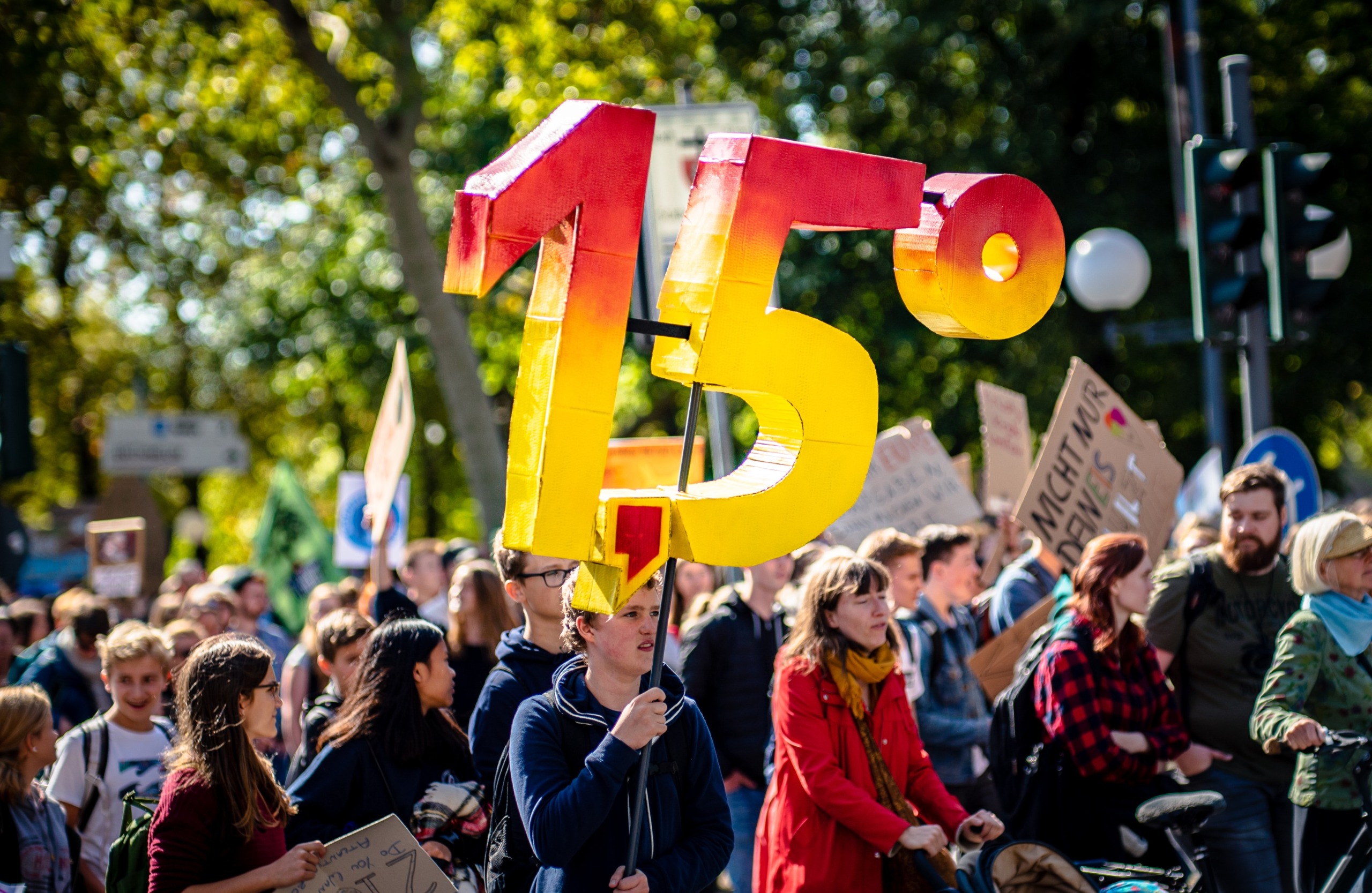In August 2018, 15-year-old Greta Thunberg, along with other young activists, chose to not go to school. Instead, they sat in front of the Swedish Parliament with a sign that read “Skolstrejk för klimatet” (school strike for climate).
Vi barn gör ju oftast inte som ni säger åt oss att göra, vi gör som ni gör. Och eftersom ni vuxna skiter i min framtid, så gör jag det med.
Jag skolstrejkar för klimatet fram till valdagen. pic.twitter.com/OyIvpdBiEq— Greta Thunberg (@GretaThunberg) August 20, 2018
They posted on Instagram and on Twitter what they were doing, and they soon went viral.
The Fridays for Future (FFF) movement was born.
Now, five years later, Fridays for Future is one of the biggest and most famous climate movements in the world.
The Rise of Fridays for Future
Fridays for Future activists protest for the climate, calling for more attention from the politicians towards the climate crisis and the implementation of the Paris Agreement.
The first protesters spent the three weeks leading to the 2018 Swedish elections in front of the Parliament in Stockholm. The strikes were organized by children and young adults.
In just under one year, the movement gained global status.
On March 15, 2019, the first globally coordinated protest took place: 1.4 million people participated. From America to Asia, schoolers from 2,233 cities called for concrete actions to address the climate crisis.
The second globally coordinated protest was held in May 2019 and the third on Sept. 20, 2019, with 2 million people participating. In the week that followed the first September strike, the number of protesters rose to 7.6 million.
It’s early morning in the Pacific. Soon the sun will rise on September 20th 2019. Good luck Australia, The Philippines, Japan and all the Pacific islands. You go first! Now lead the way!#fridaysforfuture #climatestrike #schoolstrike4climate
(NZ + many others go next week.) pic.twitter.com/u1pji4SySN— Greta Thunberg (@GretaThunberg) September 19, 2019
Even though the protests were aimed at youngsters, the number of adults joining grew over time. A survey conducted in 2019 revealed that “the overall median age increased from March to September (from 21 to 28 years).”
In March 2019, people between 14/15 and 19 “made up the largest share of demonstrators,” according to the survey; in September, “this cohort accounted for 31% of demonstrators.”
The protests continued over the years. Even though the 2020 pandemic forced protesters to pause the strikes — which resumed later that year — the influence of Fridays for Future on people and politics was already visible.
Young People: From Consumers to Activists
In 2007, according to this research, new generations were less politically engaged than the older ones. Moreover, the interests of older people were taken more into consideration compared to those of younger people, and were more likely to become concrete policies, a 2010 study found.
At the same time, young people will be the most exposed to the consequences of climate change.
“Young people are also a group with various barriers when it comes to mitigating climate change themselves by engaging in pro-environmental behaviors,” write the researchers behind a 2021 study investigating the reasons behind pro-environmental behavior. “They are usually not able to undertake large investment decisions in efficient technology (such as solar panels) and many are still not allowed to vote for a party that aims to protect the climate. Young people are thus often limited to certain roles for effectively reducing climate change.”
The researchers go on to explain that young people have thus mostly been viewed as “consumers,” and that their “impact in other roles, such as active political citizens, received only little attention.”
Fridays for Future, write the study authors, evolved “against (or because of) this limitation to the consumer role in the environmental context.”
What the study found is that “perceiving friends participating in the movement, identification with others engaging in climate protection, and personal norms in the form of a felt obligation based on values were most strongly related to their participation in FFF protests.”
In other words, people are more likely to take part in a protest if they have friends who share the same values as them and join them in the protests.
Fridays for Future provided young people with this friendship and community aspect needed to mobileze, and gave them a new, “active political citizens” role in tackling the climate crisis — one that, unlike the consumer role, has been receiving a lot of attention.
Related articles: ‘We Need to Think Outside the Box’: The Significance of Greta Thunberg’s ‘The View’ Interview | Greta Thunberg Sues Right-Wing Swedish Government Over Climate Inaction | Youth Take Charge of Climate Activism, but to What Avail? | Greta Thunberg Won’t Attend COP27, Accusing it of ‘Greenwashing’
Influencing Politics: The European Green Deal
Frans Timmermans, First Vice-President of the European Commission and Executive Vice-President for the green deal, described Greta Thunberg as “a hero.”
“We would have no European Green Deal without her and the Fridays For Future movement,” Timmermans stated in an interview with Euronews.
The European Green Deal, a pack of policies to make Europe the first climate-neutral continent by 2050, was presented by the European Union in December 2019.
The Green Deal aims at reducing greenhouse gas emissions in all sectors — including industry, farming, and energy, among others. To do so, the European Union planned several concrete actions, from lowering the impact of transportation to flora restoration. For example, one of the Green Deal’s goals is to renovate 35 million buildings by 2030 to make them greener.
Overall, the European Green Deal is a very important set of policies for the sustainable transition. The influence of the Fridays for Future movement on the Deal should not be underestimated.
The Future of Climate Action: “The Fight Has Only Just Begun”

Fighting for a sustainable future, however, is more than a political maneuver. It is a way to ensure young people have a planet where they can live and prosper the way previous generations did.
Over the past five years, Fridays for Future has not stopped — and is not planning to.
In June 2023, Greta Thunberg graduated from high school. On her last school strike for the climate, she tweeted a thread in honor of the five years of Fridays for Future
School strike week 251. Today, I graduate from school, which means I’ll no longer be able to school strike for the climate. This is then the last school strike for me, so I guess I have to write something on this day.
Thread🧵 pic.twitter.com/KX8hHFDyNG— Greta Thunberg (@GretaThunberg) June 9, 2023
Greta finished off declaring that she will not stop protesting for more climate action, because “[t]he fight has only just begun.”
One can only make guesses as to why the movement was so successful. It might be because it spoke to people in a realistic and easy way. There was no political fuss, no hidden agenda, no material gain. As the protesters state: “We strike because we have no choice.”
Editor’s Note: The opinions expressed here by the authors are their own, not those of Impakter.com — In the Featured Photo: Demonstration on 23 September 2022, Brunswick, Germany. Featured Photo Credit: Jorge Saturno.










